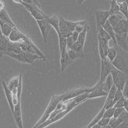[New directions of research related to chronic wound healing].
Paraules clau
Resum
Optimal nutrition, immunological state and psychological condition play an important role in the process of chronic wound healing. Infections caused by pathogens resistant to commonly used antibiotics additionally complicate and disturb regeneration of wounds. As part of the treatment, modern wound dressings are used, for example designed on the basis of alginates, dextranomers, hydrogels, hydrofiber, polyurethanes foams, hydrocolloids and liquids for wound debridement such us 0.9% NaCl, the PWE liquid, Ringer's liquid, octenidine. Owing to their features, treatment in accordance with TIME concept could be realized, because they provide moisture wound bed, protection against contamination, gas exchange, protection of wound edges and infection control. Repairing process in chronic wounds is dependent on blood flow in tissues, which may be insufficient. The result is a permanent hypoxia. Natural occurring antioxidants are becoming more crucial in chronic wound treatment. They decrease oxygen radical concentration, increase angiogenesis, reduce inflammatory response, stimulate fibroblasts and keratinocytes proliferation, possess antibacterial properties against chemotherapeutic resistant strains. There are a lot of antioxidants in honey, papaya fruit (Carrica papaia L.), transgenic flax (Linum usitatissimum), and in orange oil (Citrus sinensis), stem of acanthus (Acanthus ebracteatus), leafs of tea (Camellia sinensis). Application of biologically active, natural derived compounds is nowadays a direction of intense in vitro and in vivo research focused on the chronic wound treatment. Results suggest beneficial influence of antioxidant on wound repairing process. Clinical research are needed to state effective influence of natural compound in the chronic wound treatment.



